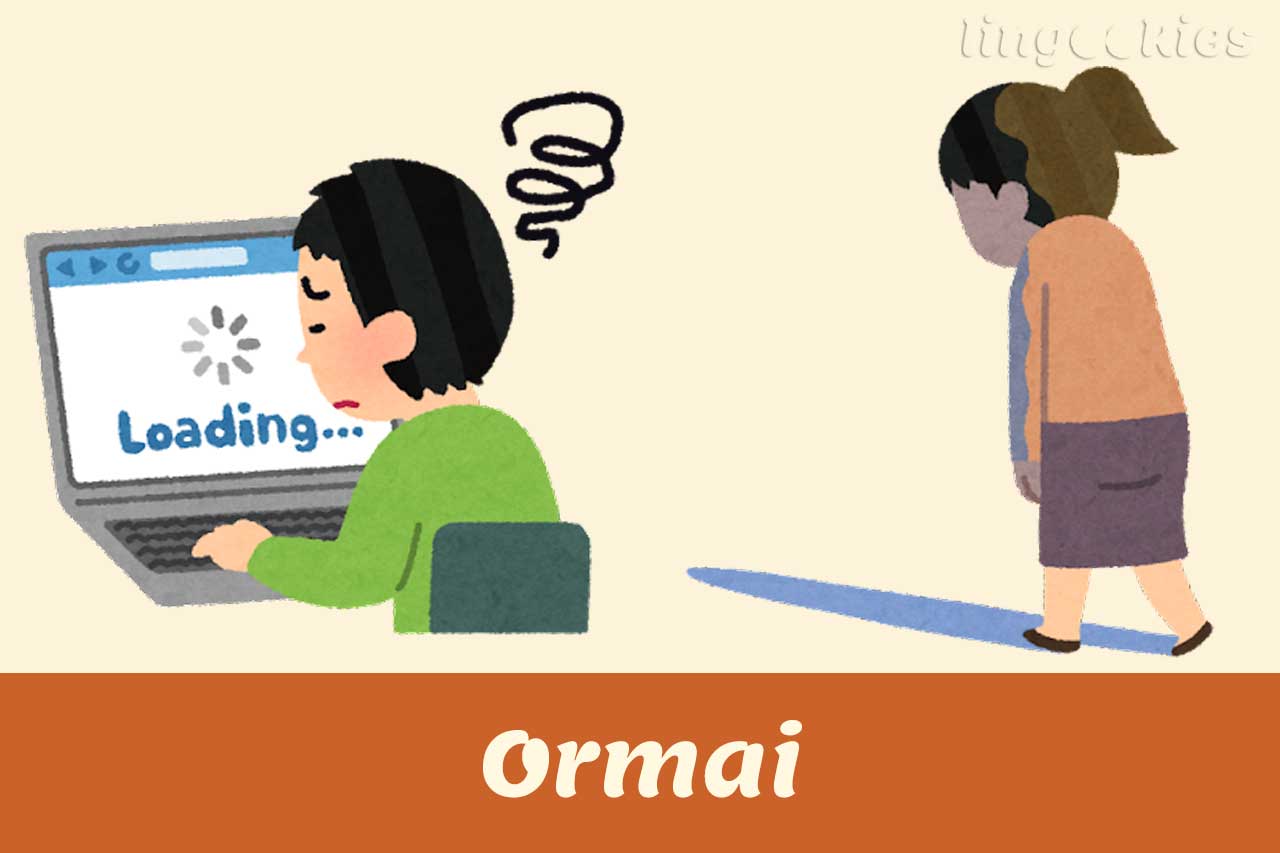How do you use the word ormai in Italian? What does it mean? How do you pronounce it?
In this lesson, we will look at how to use this word along with the help of many audio recordings and example sentences. Read on to learn everything you need to know!

Ormai in Italian
What is ormai?
Ormai is an adverb that can be translated into English as “at this point”, “by now/then” or also “nearly”.
Ormai
At this point, by now, by then, nearly, almost
Its pronunciation is close to or-mah-ee. If you have trouble pronouncing the Italian sounds, especially the rolled R, check out the Italian pronunciation guide.
Now, let’s see some example sentences with ormai in Italian, before we look at how to use this word.
Title: Italian All-in-One For Dummies
Language: English / Italian
Publisher: For Dummies
Pages: 672
Learn to speak Italian like a native? Easy.
Italian All-in-One For Dummies appeals to those readers looking for a comprehensive, all-encompassing guide to mastering the Italian language. It contains content from all For Dummies Italian language instruction titles, including Italian For Dummies, Intermediate Italian For Dummies, Italian Verbs For Dummies, Italian Phrases For Dummies, Italian Grammar For Dummies, and Italian For Dummies Audio Set.
Ormai è troppo tardi per annullare l’ordine.
At this point, it is too late to cancel the order.
Luca dovrebbe ormai essere arrivato a casa. Perché non risponde al telefono?
Luca should have arrived home by now. Why isn’t he answering the phone?
Credo che Lorenzo dovrebbe ormai essere a Milano.
I think Lorenzo should be in Milan by now.
Il piano è ormai compromesso.
The plan has been compromised by now.
Mio papà? Ormai è in pensione, gli mancano solo pochi giorni di lavoro.
My dad? He’s retired at this point, he only has a few days of work left.

Now let’s see how to use ormai in Italian.
Use of ormai in Italian
We’ve said that ormai in Italian is an adverb that can mean “at this point”, “by now/then” or also “nearly”.
Sometimes you will also see it written as oramai, with an extra -a-. But don’t worry, oramai and ormai are perfectly interchangeable!
Oramai
At this point, by now, by then, nearly, almost
Ormai is mainly used to express discouragement. Something has happened and there’s nothing you can do about it, so you use ormai to say there’s nothing you can do anymore and you might as well accept what’s happened.
Ormai abbiamo perso il treno. Non ha senso correre.
We have already missed the train. There is no point in running.

In this sentence, the speaker is annoyed at having missed the train and says there’s no point in running because it’s too late to get on the train.
A popular synonym for ormai when it’s used to mean “at this point” is a questo punto, which literally means… at this point! For example, you could say…
Siamo arrivati fino a qui, a questo punto possiamo andare un po’ più avanti.
We have come this far, at this point we can go a little further.
Let’s see a few other examples with ormai in Italian.
Sarai stanco, ormai. Riposati un po’.
You must be tired by now. Get some rest.
Ormai sei quasi arrivato. Fai un ultimo sforzo!
You are almost there now. Make one last effort!

Mio figlio ha ormai vent’anni. Non è più un bambino.
My son is nearly 20 years old. He is no longer a child.
Ormai non posso più rimandare il viaggio.
I can no longer postpone the trip at this point.
And that’s the end of our lesson on how to use ormai in Italian!
What next?
Now that you’ve seen how to use ormai in Italian, you might want to keep learning Italian online with these free Italian resources:
❤️ If you liked this lesson on how to use ormai in Italian, consider sharing it with your social media friends who are also studying Italian.




